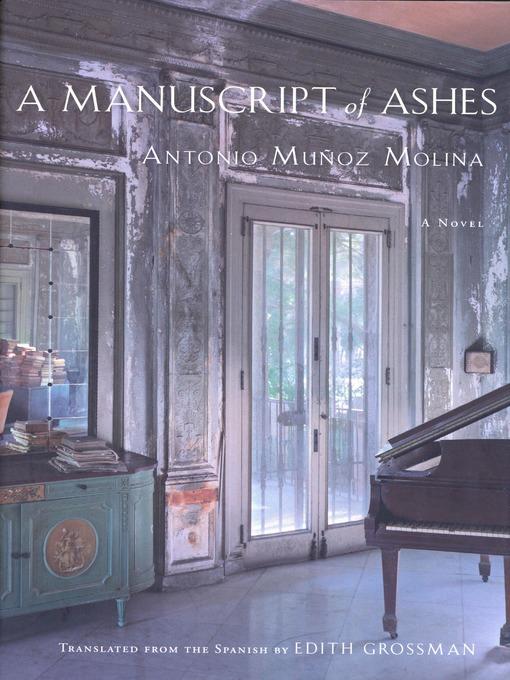
A Manuscript of Ashes
- اطلاعات
- نقد و بررسی
- دیدگاه کاربران
نقد و بررسی

May 5, 2008
Following Muñoz Molina’s acclaimed 18th book, Sepharad
, this translation of his third novel (published in his native Spain in 1986) dives into a bleak corner of Franco’s waning dictatorship. In 1969, Minaya, a student who has attracted secret police notice, leaves Madrid for his uncle Manuel’s house in a small town in Cordoba. There, he plans to research Republican-era poet Jacinto Solana, who briefly stayed at Manuel’s house after being released from prison in 1947. The house itself is a gloomy place of stale secrets and arrested lives: Manuel’s mother, Doña Elvira, lives reclusively at its top; Manuel still doesn’t forgive her for her disapproval of Mariana Ríos, the artist’s model whom he married in 1937 and who was killed, supposedly by a stray fascist bullet—and whom Jacinto Solana also loved. Minaya (with help from Manuel’s young maid, Inés) finds hidden manuscripts by Jacinto, which put him on the trail of the true story. Molina keeps an iron grip on the plot’s intricacies. The abrupt payoff is more Agatha Christie than anything else, but Molina’s slow moves through the story’s maze capture the wrenching tragedy of 20th-century Spain.

April 1, 2008
Originally published in Spanish, Muñoz Molina's first novel appears here in a finely wrought English translation for the first time. It is an intellectual, double-barrel detective story that superficially concerns itself with a murderer's identity and artistically with the narrator's identity. Minaya, a university student in Madrid, returns to his uncle's home in the mythical town of Mágina to write a dissertation on the late forgotten poet Jacinto Solana. With the maid's help 32 years after the fact, Minaya uncovers the identity of his uncle's wife's murderer. Furthermore, as it turns out, Solana is not only very much alive, but Minaya also plays an important role in this work's creation. Using memory as a narrative device, Muñoz Molina guides readers to the surprise ending through a sequence of events that flit back and forth between the Spanish civil war era and the postbellum period. Already a contemporary classic, this workwhose nonlinear story is developed via changing narrative voices and whose hermetic text requires persistence and close observationis an enigmatic gem in the very best metafiction tradition. Recommended for large public libraries and for academic libraries that collect contemporary translations.Lawrence Olszewski, OCLC Lib., Dublin, OH
Copyright 2008 Library Journal, LLC Used with permission.

June 1, 2008
Much acclaimed in Spain, Muoz Molina spent years of anonymity in U.S. literary circles, which ended abruptly with Sepharad (2003), in which private and public narratives of the Holocaust collided noisily, earning comparisons to W. G. Sebald and other explorers of historical memory. The protagonist of his debut novel, originally published in 1986, is Minaya, a university student tortured for his role in a student uprising, who retreats to his uncles country estate.He is supposed to be researching Jacinto Solana, a friend of his uncle and a political poet active during the Spanish civil war. Supposedly, the long-dead Solana hid a lost masterpiece somewhere in the house; also hidden is the truth about the alluring Mariana, loved by Solana and uncle alike, and shot dead on her wedding night. Its a mystery novel of sorts--wheres the book? Who killed Mariana?--as well as an ambitious, expressive metafictional dramatization of the notion that readers are like private detectives to be deliberately befuddled by the author. If its self-reflexivity, nonlinear structure, and shape-shifting narrator obfuscate, it is because Muoz Molina wants to probe the messy melding of history and memory.(Reprinted with permission of Booklist, copyright 2008, American Library Association.)




دیدگاه کاربران